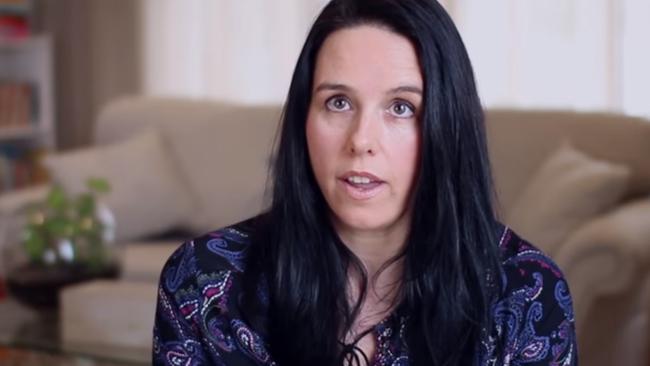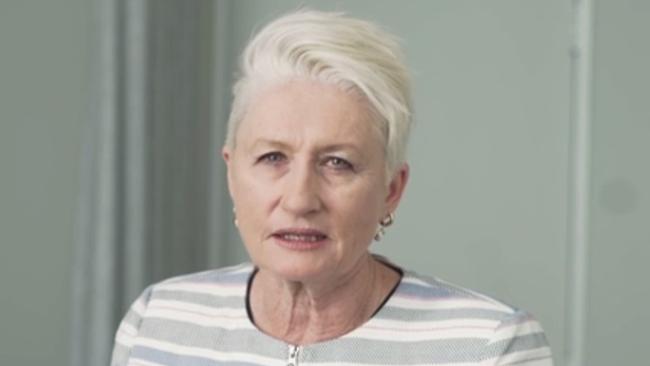Same-sex marriage: ‘Yes’ campaign’s response to ‘No’ ad
THE same-sex marriage ‘Yes’ campaign has responded to the “dishonest ... misleading claims made by opponents of equality”.
EXCLUSIVE
THE same-sex marriage ‘Yes’ campaign has responded to the controversial ‘No’ advertisement with its own commercial that will air for the first time on Australian TV on Wednesday night.
The Equality Campaign’s spiel comes just 24 hours after the Coalition for Marriage launched its ad which pushed the message “you can say no” in relation to a same-sex marriage survey — that could be blocked in a looming High Court challenge.
The ‘No’ ad featured Australian mothers who argued they could lose control of gender programs taught to their children in schools under the proposed legislation.
But the Equality Campaign — the organisation behind the ‘Yes’ movement — on Wednesday night will hit back with an advertisement that addresses its ‘No’ counterpart’s claims.
Former Australian Medical Association president Dr Kerryn Phelps, who features in the TV advertisement, described the ‘No’ campaign as “dishonest ... misleading claims made by opponents of equality”. She said it was about “dividing the nation” while the ‘Yes’ campaign was about “uniting Australians”.
“Over the coming weeks we’ll be hearing a lot about whether our family and friends who are gay and lesbian can get married,” Dr Phelps said in the ad after watching some of the ‘No’ clip.
“Sadly, some are trying to mislead us, like this ad does, by saying marriage equality will have a negative impact, including on young people.
“The only young people affected by marriage equality are young gay people who, for the first time, will have the same dignity as everyone else in our country and they deserve that.”

The ‘Yes’ advertisement will roll out nationally over coming days.
Equality Campaign Executive Director Tiernan Brady said it was important to remember the “national conversation is about real people”.
“Negative material can inflict real damage,” he said.
“The next few weeks must be a campaign of respectful conversations, not angry debates, because this is about real people’s lives and their dignity,” Mr Brady said.
“Lesbian and gay people are our family members, friends, neighbours and workmates and we would ask all who take part in our national conversation to remember that.”
The ‘No’ advertisement triggered a hostile response from opposition leader Bill Shorten, who described it as “total rubbish (and) ... offensive and hurtful to LGBTI Australians and their families”.
“This is not freedom of speech. This is freedom to hurt,” he said.
“This is exactly what was predicted when Malcolm Turnbull decided to waste $122 million on a postal survey.”

Meanwhile, the High Court has been told money for the same-sex marriage survey has merely been “earmarked” to be used and it’s up to the finance minister to decide what is “urgent” spending.
The Government lodged its argument on Wednesday in seeking to fend off a challenge to the survey by marriage equality advocates.
The advocates say the survey breaches the constitution, as Parliament did not pass legislation to pay for it and the Australian Bureau of Statistics does not have the legal power to run it.
Constitutional expert George Williams has warned the Government faces an uphill battle, arguing a series of recent decisions by the High Court has found the federal government requires parliamentary approval to spend taxpayers’ money. Cabinet minister Simon Birmingham, who supports same-sex marriage, insists the Government remains confident it will get the tick of approval from the High Court.
“It would be inappropriate to talk about the hypotheticals of what the court would find,” he told ABC radio.
The Government said it has properly used laws to make an advance payment to the finance minister in circumstances where there is an “urgent” need for spending and the situation was “unforeseen”.
Rather than an “appropriation”, which would require legislation, the minister’s advance merely “earmarks money for a particular entity and particular purpose”, the Government said.
It also argued the “evaluative judgment” as to whether something is urgent or unforeseen lies with the minister, Mathias Cormann. It cited a 1979 report which recommended the criteria for the use of the advance — which stands at $295 million — should be a matter for the finance minister satisfying himself there were urgent and unforeseen circumstances. In any case, the Government said the minister could argue “urgency” because it did not have a policy for a voluntary survey until August 7 and the ABS needed to start work quickly on the new policy if a result was to be determined by November 15.
While the Government accepted that “generalised proposals for a postal plebiscite” had been floated by individual ministers before August, it had not been adopted as government policy.
On the issue of the ABS being able to run the survey, the Government submitted the agency was able to collect “data of any kind” including opinions.
A hearing is set down for September 5 and 6.




